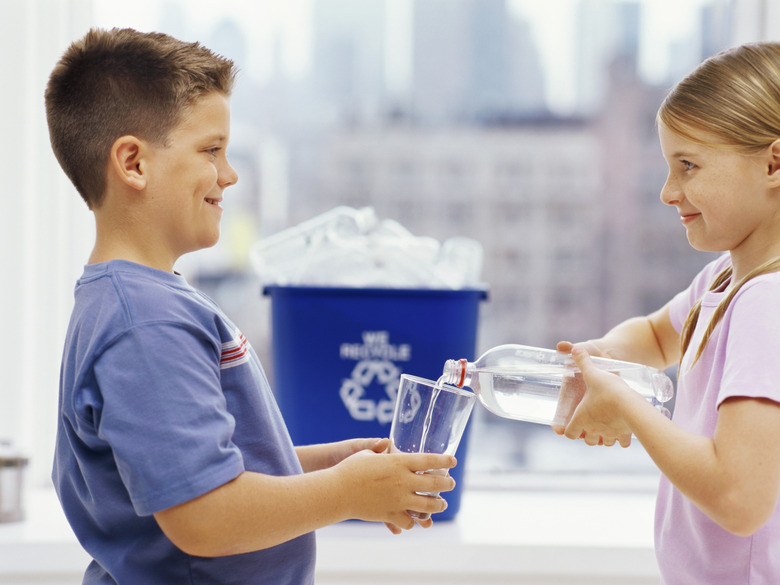Why Does Water Have Zero Calories?
You cannot survive beyond one week without water. Your muscles are 75 percent water and water is used to transport oxygen, nutrients and waste to and from your cells. Water is an important element in your healthy eating habits, yet contains zero calories, so it does not add to weight gain.
Calories
Calories
Calories are units of energy from food. Your body uses calories as fuel for your daily movements. The amount of energy in certain foods depends on the number of fats, carbohydrates and proteins that a food contains. One gram of fat equals nine calories. One gram of carbohydrates equals 4 calories. One gram of protein equals 4 calories. Most foods contain a mixture of all three of these nutrients.
Water
Water
Water does not contain fats, carbohydrates or proteins, so therefore it does not contain any calories. Water is essential to your body's energy system, because it helps to transport the energy from the breakdown of foods into your cells, yet the water itself will not add calories to your body. Zero calories results in zero weight gain.
Beverage consumption
Beverage consumption
The American Journal of Clinical Nutrition lists different beverages and recommended daily consumption levels. They suggest that zero calorie water should be 50-80 percent of your daily beverage consumption. Daily fluid requirements vary person to person, so check with your doctor for the amount that is best for your body.
Exercise
Exercise
The American Council on Exercise suggests replacing fluids lost during exercise with these guidelines: Drink 17 to 20 oz. of water two hours prior to your workout. Drink 7 to 10 oz. during your workout every ten to twenty minutes. Drink 16 to 24 oz. for every pound of weight loss immediately after exercise. Water will not add calories to replace that lost weight, it will simply replace lost fluid levels.
Benefits
Benefits
At zero calories, water offiers an abundance of benefits. It acts to lubricate your joints, and protects your organs from shock. Water does not contain calories, but is used in the transportation of calories to your cells for energy use.
References
- The American Council on Exericse: Healthy Hydration
- Personal Trainer Manuel; The American Council on Exercise; 1991
Cite This Article
MLA
Wolfe, Lisa M.. "Why Does Water Have Zero Calories?" sciencing.com, https://www.sciencing.com/why-does-water-have-zero-calories-5764499/. 21 July 2017.
APA
Wolfe, Lisa M.. (2017, July 21). Why Does Water Have Zero Calories?. sciencing.com. Retrieved from https://www.sciencing.com/why-does-water-have-zero-calories-5764499/
Chicago
Wolfe, Lisa M.. Why Does Water Have Zero Calories? last modified March 24, 2022. https://www.sciencing.com/why-does-water-have-zero-calories-5764499/
